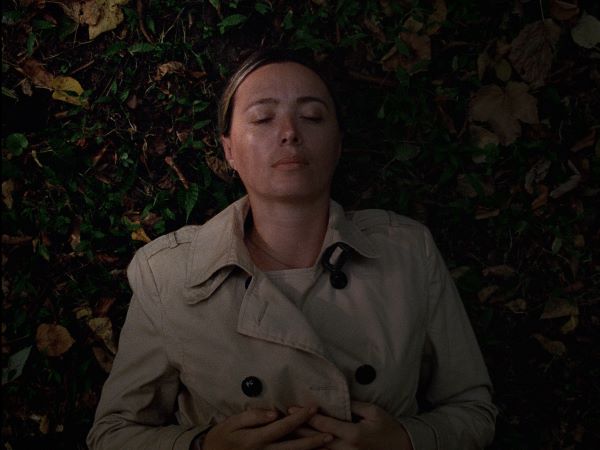
Beginning is a film in touch with deep currents of thought and artistry. Dea Kulumbegashvili’s portrait of a Georgian woman collapsing under the weight of a callous world recalls Bergman, Ibsen and Strindberg, Kafka, and even some of the more vengeful verses of the Bible. But the director adds a singular, daring prism of her own through which to view destructive forces at work upon (and within) her troubled central character.
The film opens in a bare Jehovah’s Witness church where a static wide shot takes in the minister, David (Rati Oneli), and his wife, Yana (Ia Sukhitashvili), cordially welcoming a modest congregation. No sooner has the husband begun his sermon than firebombs explode inside the building. The camera stays still as the parishioners desperately fight the blaze and struggle to flee the tight space in real time. Almost as if following the escapees, the camera relocates outside, focused motionlessly on the church roiling in flames against a pristine mountain backdrop as the stunned worshippers watch and uncomprehending children gambol on the sidelines. The silent camera seems to say in the face of the mayhem, “It is what it is.” A sense of fatalism echoes later in the dialogue when it emerges that the police don’t care about arresting the culprits—to them, David and Yana’s distrusted religion is fair game.
The next scene moves into Bergman territory with an argument at home between David and Yana, a30-something former actress. Rattled by the attack on the church and frustrated by her marriage, she can’t communicate her inner anguish. Her somewhat older, overbearing husband just wants to get their standoff over and exasperatedly asks, “Can’t you act like a normal person and just tell me what you want?” He then proceeds to not listen when she actually mentions a few things she would like, suggesting instead she find a job or get a kitten to take the edge off. Assaulted in a house of worship and stonewalled at home, what’s next for Yana?
As it turns out, a visit from a twisted police detective, unsurpassed in its creepiness. It won’t do to say too much about this disturbing, surreal set piece, but Kulumbegashvili stretches the encounter into a tense, eerily timeless episode of intimidation and psychological abuse, and also an occasion where her heroine shows courage and self-control. Qualities that later do her no good against a later burst of shocking sexual violence that unfolds in another sequence filmed in one extended take set against a lovely natural backdrop.
Many skillful choices echo the film’s themes of destruction steered by fate. Yana revels in nature, but its beauty doesn’t protect her from harm. As Yana interacts with someone in a scene, the camera hides him from view—we have to rely on a sixth sense to gauge what she sees and reacts to. The camera also dwells on the innocence of childhood, with sensitive, pensive moments between Yana and her son, Giorgi (Saba Gogichaishvili), and incidental scenes of children frolicking through the church bombing mayhem. But a scene where Yana warns innocent tots with hellfire in a Bible study class lets us know what’s in store for them—and leaves open whether Yana believes what she teaches or not. Suggestions of mortality appear everywhere: in an intruding hand behind an unwitting Yana on a train seat, a pair of stubbornly closed eyes, a casual angel of death at the camera’s periphery.
Beginning may sound overbearing, but a spare yet empathetic touch and the instinct to hold back from overdirecting the viewer keep it from coming on too strong. Kulumbegashvili has an asset in actress Sukhitashvili. Another excellent performer like Nina Hoss would let you see the emotions playing out under a controlled exterior, but Sukhitashvili doesn’t. It’s almost as though the character can’t quite grasp what she feels. In a harsh emotional landscape like this, stunned incomprehension is perhaps the only possible response.


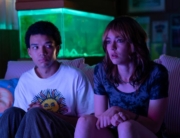
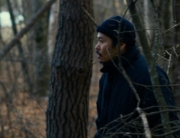
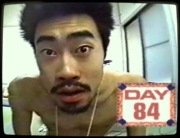
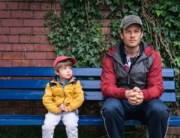
Leave A Comment